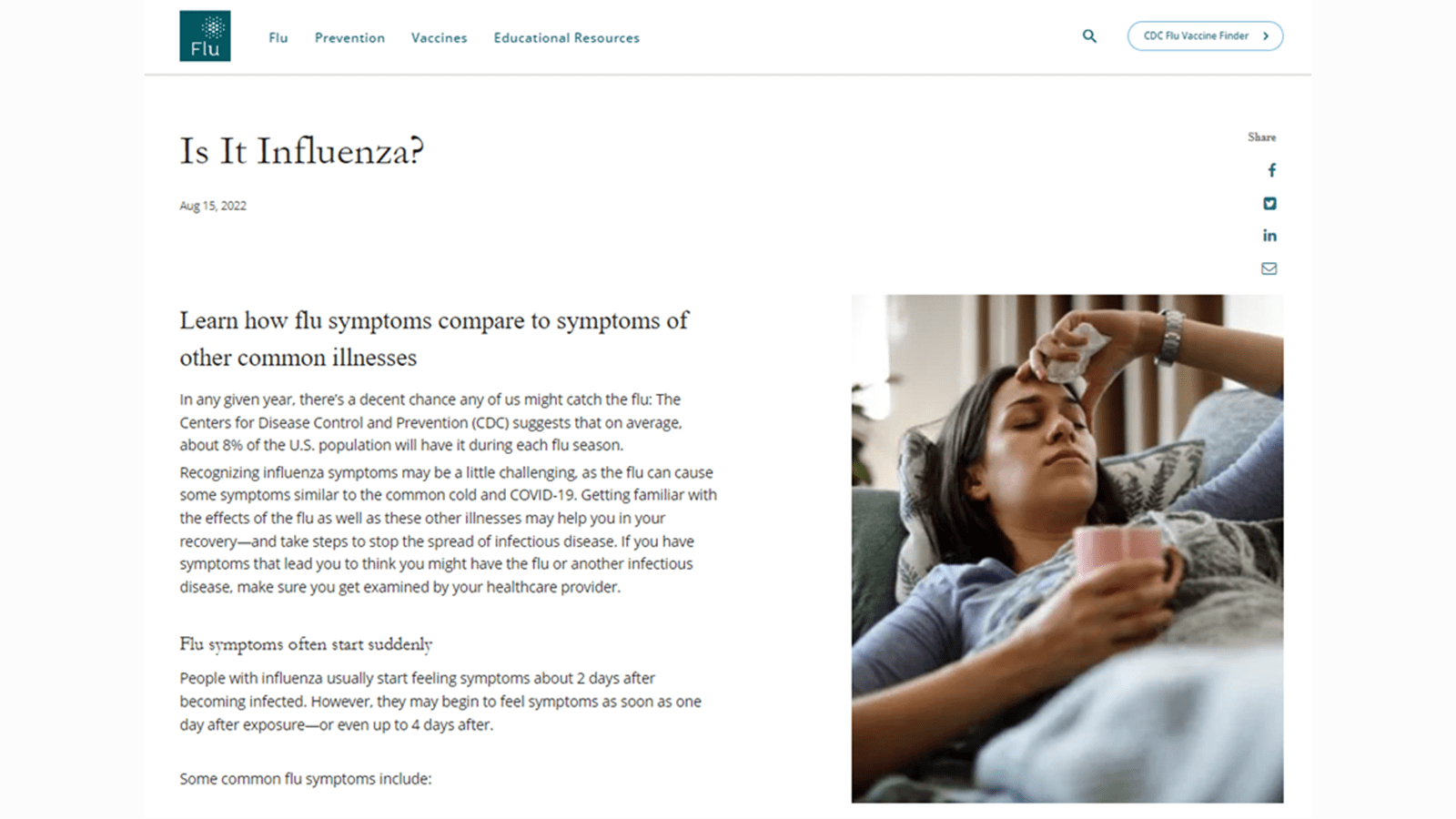It’s not always easy to stay healthy in the colder months when flu and other respiratory viruses are in higher circulation in the Northern Hemisphere. However, there’s a new online resource available to help you during this time: Flu.com, a website sponsored by CSL Seqirus, provides news and updates about influenza and flu vaccines in the United States.
As the 2023–2024 flu season begins, it’s important to know that the U.S. Centers for Disease Control and Prevention (CDC) recommends most people get a flu shot by the end of October. Talk with your doctor about flu vaccines and staying healthy this winter.
Here are six more things to know about the 2023–2024 flu season:
- The CDC recommends flu vaccines for everyone aged 6 months and older with few exceptions. Learn more about which flu vaccine may be right for you.
- There are many types of flu vaccines generally available worldwide; each contains antigens, which are part of the vaccine that help the body build up an immune response. A few types of flu vaccines that are currently approved for use in the United States include standard-dose vaccines, which are made with flu viruses that have been inactivated or killed; high-dose vaccines, which have a higher amount of antigen than standard-dose flu vaccines; and adjuvanted flu vaccines, which contain an additional ingredient designed to increase, broaden and lengthen the immune response to the vaccine.
Yet while there are many types of flu vaccines available, there are currently three main technologies used to make them. These include egg-based, cell-based and recombinant technologies. Egg-based and cell-based technologies use a deactivated or weakened version of the influenza virus. Egg-based vaccines are produced by growing flu viruses in hen’s eggs; cell-based vaccines are grown in mammalian cell cultures instead of chicken eggs. Recombinant technology does not use the flu virus or chicken eggs; instead, it uses a flu virus gene.
- The Advisory Committee on Immunization Practices (ACIP) is a group of U.S. medical and public health experts that reports to the CDC director. They advise and make recommendations so updated vaccines better match the flu viruses predicted to circulate each season in the United States.
The ACIP does not make any preferential recommendation for a specific vaccine—except in people aged 65 years and older. Last flu season, the ACIP voted to preferentially recommend the use of higher-dose and adjuvanted flu vaccines over standard-dose unadjuvanted flu vaccines for this age group. If you fall in this group of people, ask your doctor which flu vaccine is right for you.
- You may know that there are various strains, or varieties, of flu viruses. This year’s vaccines have been updated to protect people against strains of influenza based on a recommendation from the ACIP.
- When there is a good match between the component viruses used in flu vaccines and the flu viruses in circulation, flu vaccines can work more effectively. In the 2022–2023 flu season, there was a good match between vaccines and influenza strains circulating in the United States. Preliminary estimates show that Americans who got their flu shot last flu season reduced their chance of getting hospitalized for flu illness or complications by approximately 40%-70%.
- Flu.com, launched by CSL Seqirus last year for U.S. audiences, will follow flu activity throughout the fall and winter. You can also find more information on these topics:
- Where to find a flu shot
- Common questions about the flu and flu vaccines
- Why flu viruses mutate, requiring the development of new flu vaccines each year
- Inequities in flu vaccination among minorities
- Vaccine hesitancy – an important reason why the rates of flu vaccination have been going down in recent years, putting public health at risk
- Whether you can get flu in the summer (you certainly can!)
- The history of influenza



